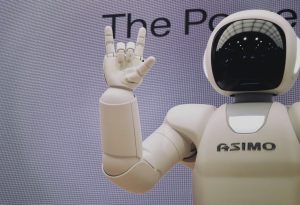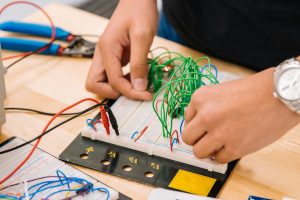How Artificial Intelligence Shapes Academic Advising Systems
The use of artificial intelligence (AI) has been rapidly rising and transforming various industries, including education. With the advancements in technology, AI has been incorporated into academic advising systems, enhancing the traditional advising process and providing personalized guidance to students. In this article, we will delve into the ways in which AI shapes academic advising systems, and the impact it has on students and universities.
The Role of AI in Academic Advising Systems
Academic advising is a crucial aspect of a student’s academic journey, as it provides guidance in course selection, career planning, and overall academic success. Traditionally, the advising process involved face-to-face meetings between students and advisors, which were often time-consuming and lacked personalization. However, with the introduction of AI, academic advising has been revolutionized.
Personalized Advising
AI-powered advising systems have the ability to gather and analyze vast amounts of data, including a student’s academic records, interests, and career goals. This data is then used to provide personalized recommendations and guidance to students, making the advising process more efficient and effective. This not only saves time for both advisors and students but also ensures that each student receives tailored advice that caters to their individual needs.
24/7 Accessibility
One of the major advantages of AI-powered advising systems is the 24/7 accessibility they offer. Unlike traditional advising, which is limited by office hours, AI systems are available round the clock. This means that students can seek advice and guidance whenever they need it, without having to wait for an appointment. This has proven to be particularly beneficial for students who have busy schedules and are unable to meet their advisors during regular office hours.
Increased Efficiency
With AI systems handling routine advising tasks such as scheduling appointments and answering frequently asked questions, advisors can focus on more complex issues that require human intervention. This allows for a more efficient use of time and resources, as advisors can cater to a larger number of students without compromising the quality of advice.
The Impact of AI on Students and Universities
Improved Student Retention
One of the main goals of academic advising is to support student success and retention. With personalized and easily accessible advice provided by AI systems, the chances of students dropping out or making poor academic decisions are significantly reduced. This not only benefits students but also universities, as higher retention rates lead to increased revenue and reputation.
Enhanced Student-Advisor Relationships
AI systems do not replace human advisors; rather, they work in tandem with them. As the burden of routine tasks is lifted off their shoulders, advisors have more time to build meaningful relationships with students, and provide them with the guidance and support they need. This strengthens the student-advisor relationship and contributes to a positive university experience for students.
Data-Driven Decision Making
AI systems gather and analyze vast amounts of data, giving advisors and universities valuable insights into student preferences, needs, and challenges. With this data, advisors can make informed decisions and proactively address issues that may hinder a student’s academic success. Universities can also use this data to improve their advising services and cater to the evolving needs of their students.
Conclusion
AI has undoubtedly transformed the way academic advising is conducted, providing students with a more efficient, personalized, and accessible experience. While the role of human advisors remains essential, AI systems enhance their capabilities and contribute to the overall success of students and universities. As technology continues to advance, we can expect to see further developments in AI-powered academic advising systems, providing students with exceptional guidance on their academic journey.










